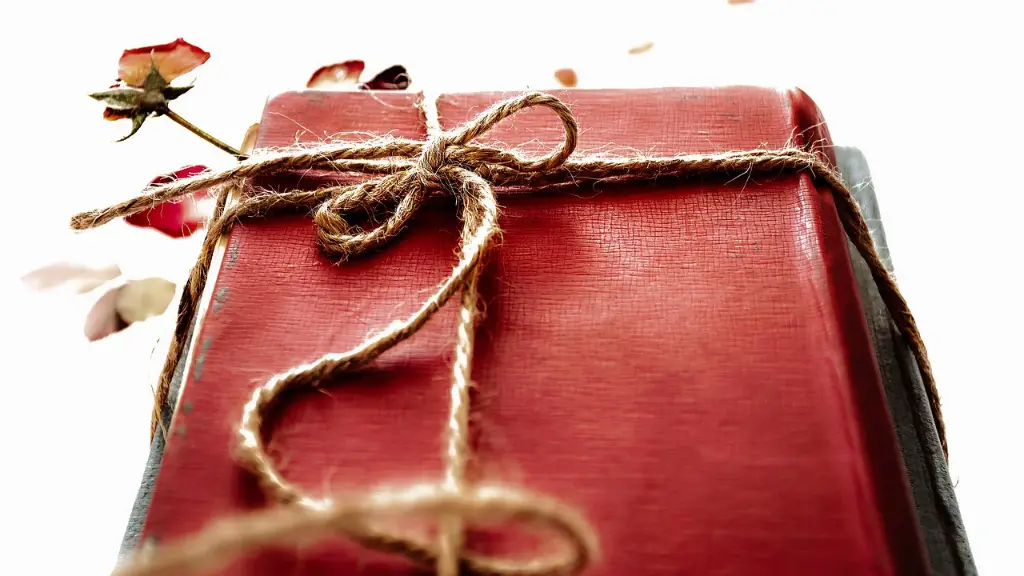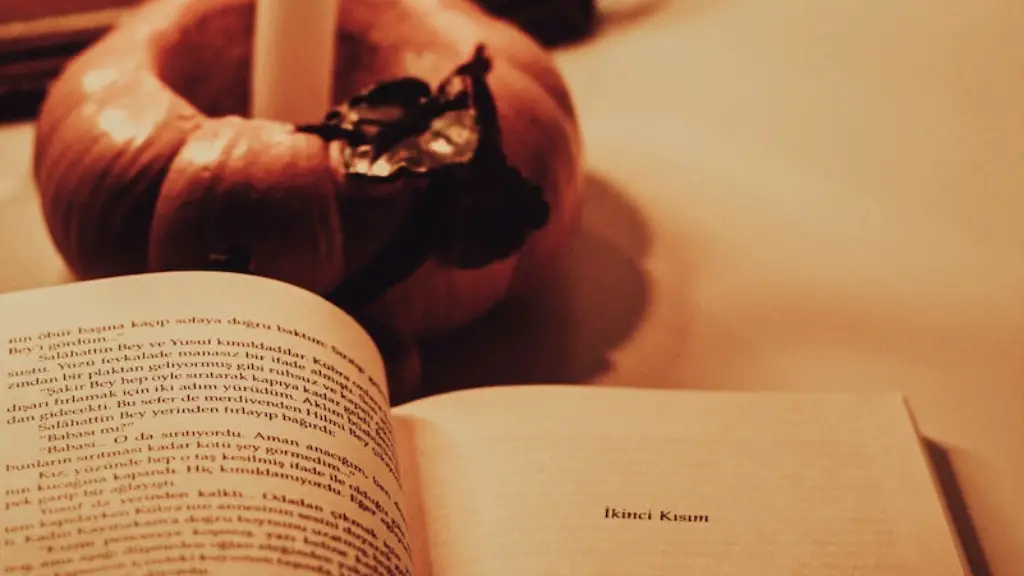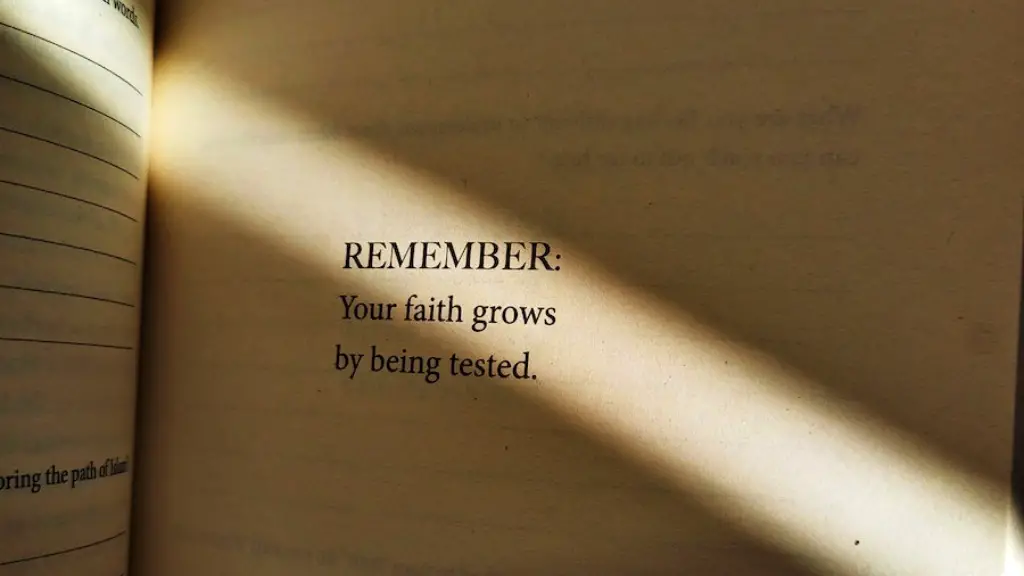Poetry is an art form that has been around for centuries, and is deeply rooted in many cultures, including those following Islam. Due to its subjective nature and interpretative literature, it has come under scrutiny from the Islamic faith regarding its ethical implications. It has come to question, is poetry haram in Islam?
The concept of haram is a powerful one in Islam, and it strives to bring one closer to Allah by avoiding negativity as much as possible in one’s life. To answer this question, it is important to be aware that there is no single established standard on this matter; in addition, a certain piece of poetry may be haram (forbidden) to one person and acceptable to the other. This topic requires subjective evaluation and the application of ethical principles.
In principle, poetry that contains words of Allah, or quotes from Islamic revealed books, may not be allowed as it is considered ‘haram’. Moreover, poetry that contains blasphemous, shameful, and idolatrous elements are considered haram, as it contradicts the teachings of the Islamic faith. Similarly, general poetry that captures or promotes violent, or immorality, inequitable behavior, that promotes bogus religious practices, music and dance, sexual innuendos, alcohol and drugs, and unethical lifestyles are usually not considered acceptable. The general rule is that poetry should portray ethical and moral behavior as it is taught in the Quran.
At the same time, it is important to note that poetry is particularly capable of conveying meaningful messages, and can be a powerful tool for expression and emotional release from one’s innermost thoughts. There are many types of Islamic poetry that fall within the bounds of permissible content such as those addressing faith or about the Prophet or Allah, praise and reflection, expressing appreciation, and conveying gratitude. As long as the poetry does not go against the Islamic faith, it will likely be considered acceptable.
It is important to note that the evaluation of poetry involves a delicate balance between faith and artistic expression. Islamic scholars and experts advise that one should not accept or reject a poem simply based on its subject matter, but rather evaluate it based on the purpose and intent of the poet. Poetry that is rooted in meaningful and inspirational ideas, feelings, and in the pursuit of goodness and justice are generally allowed. At the same time, poetry that violates the ethical standards of the Islamic faith should be avoided.
In conclusion, when it comes to the question of “is poetry haram in Islam?”, the answer depends on a range of factors, most importantly, the purpose and content of the poem. While certain types of poetry that contradict the principles of the Islamic faith such as those containing blasphemous ideas and those promoting violence or immoral behavior may be considered haram, poetry that expresses faith, inspiration, and wisdom, and promotes positive values can be considered permissible.
Exploration of Islamic Religious Texts Regarding Poetry
The Quran, the Sunnah and other Islamic religious texts provide a basis for understanding the relationship between Islam and poetry. The Quran and Sunnah are sources of guidance, and provide clarity and insight on ethical behavior, which can be applied to evaluate the appropriateness or inappropriateness of certain types of poetry.
In general, the Quran speaks of poetry in praise of Allah, along with the prophets and God’s wisdom. Additionally, the Quran calls upon believers to think deeply and ponder over His stories, and suggests that believers express their thoughts through their words.
The Sunnah also speaks of poetry when it describes the importance of being creative and seeking beauty even in mundane activities like cleaning. The Prophet Muhammad is reported to have said “beautify your speech as you beautify your actions.”
In addition, the hadith praises righteous poets who are devoted to Allah, and condemns those who spread deception and blasphemy. This indicates that there is a connection between the purpose of one’s poetry and the ethical implications of it. The hadith also speaks of the danger of poetry that is linked to arrogance, immoral behavior, and indulging in worldly pleasures.
Poetic Levity During Festivals and Celebrations
In many Muslim countries, poetry is used as a means to convey important social and spiritual messages during festive periods and celebrations. Poetry can provide relief from the daily grind, and uplift the spirit of people who are celebrating important religious holidays and times of joyous occasion. This kind of poetic levity is more permissible in Arabic culture, as it is less likely to lead to destructive indulgence and immorality. This kind of poetry is usually lighthearted and spiritual in tone, and speaks of the beauty of love, faith, and celebration.
However, while poetic levity is more permissible during joyous occasion, celebratory verses should still maintain ethical guidelines. Islamic scholars recommend that poems should avoid excessive praise of oneself and other people, as that could lead to feelings of arrogance.
These ethical guidelines should also be applied to poems read aloud during gatherings, weddings and other festive occasions, as the purpose of these types of poems is to motivate, inspire, edify and bring people closer to Allah. Poetic levity is permissible as long as it does not violate the ethical values of Islam. At the same time, poets should also be careful to avoid boasting, excessive boasting of oneself and others, and inappropriate images in their poems.
The Role of Poetry for Social Change
Poetry can be a powerful tool for social change, serving as a reminder of the power of language and the importance of communal feelings. Historically, poetry has been utilised to call attention to oppression, encourage dialogue, and promote peace and justice.
The role of poetry in encouraging meaningful and ethical dialogue is particularly important in Islam, as the faith emphasizes these values in social affairs. Moreover, poetry can serve as a powerful tool for expressing one’s innermost thoughts, emotions and beliefs in a manner that is compassionate and encourages self- evaluation.
Poetry can help cultivate an understanding of how issues, people and ideas are connected, thus fostering a sense of collective responsibility. Islamic scholars promote the use of poetry to achieve common good, seek knowledge, and bring people together in meaningful dialogue.
Furthermore, poetry is being used as a platform to promote dialogues on issues of globalization and religious toleration. Poetry can be used to challenge social and religious norms, while maintaining respect for those who adhere to different beliefs.
In this sense, poetry can be a powerful tool for engaging and inspiring people to come together in a spirit of mutual understanding and peaceful coexistence. Poetry has the ability to humanize difficult and complicated situations, thus helping to bring people together.
The Power of Poetry to Move and Promote Compassion
The power of poetry lies both in its capacity to move people and promote a feeling of oneness and compassion. Poetry has the ability to capture the emotion of a determined moment in time, turning internal experiences into external expressions. By harnessing the power of language and creating beauty from chaos, poets can open up meaningful dialogue, evoke profound emotions, and bring positive change in the world.
In Islam, poetry can be a powerful tool for conveying meaningful messages, while expressing emotions in a respectful and tolerant way. It can serve as a powerful form of expression, and as a means of elevating moral values and promoting compassion and understanding. These qualities are necessary for peaceful and harmonious relationships in society.
Poetry can also be a source of spiritual sustenance and edification, allowing us to explore our innermost thoughts and feelings, while encouraging self-reflection and contemplation of the divine. This can help believers strengthen their faith and remain grounded in their spiritual journey.
Conclusion
Ultimately, the decision on whether a poem is permissible under the Islamic faith is a subjective one. Islamic scholars advise that each poem be evaluated based its purpose and intent. Poetry that does not violate the ethical principles of Islam, and rather assists in building ethical and moral values, is generally considered acceptable. Poetry is a powerful tool for expression, providing a means of conveying meaningful messages, and fostering meaningful social and spiritual dialogue. While certain types of poetry are still considered haram in Islam, poetry can be an important part of a dynamic Islamic culture.





